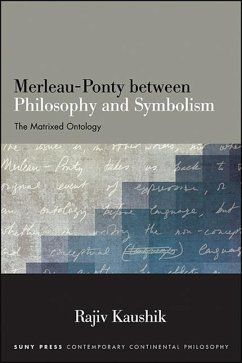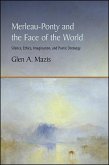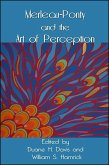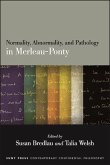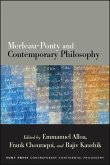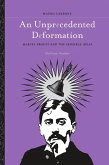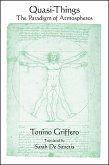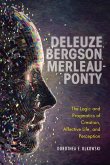Merleau-Ponty says in his Institution and Passivity lectures that he wants to "consider criticism itself as a symbolic form" instead of doing "a philosophy of symbolic form." This invites the possibility of an unconventional thought: If critical philosophy is a symbolic form, it cannot disclose its own limits and is, in fact, uncritical. Furthermore, the symbolic form can never itself be thought according to the terms of the criticism it produces but is always only constellated and matrixed within them-a symbolic form within both reflection and what it reflects on, within consciousness and the world. Thus, as Rajiv Kaushik argues, the symbolic form is another name for what Merleau-Ponty calls ontological divergence. Only now divergence introduces the question of a limit to both the subject and philosophy itself. This is nothing less than a psychoanalysis of philosophy.
Kaushik's analyses of the matrices between space-imagination, light-dark, awake-asleep, and repression-expression reveal this symbolism in its form of divergence, its lack of origin and destination. Kaushik also argues that the phenomenology of symbolism must detour from the purely descriptive method. Drawing from Merleau-Ponty's recently published course materials, and attentive to his reliance on literature and literary language, Merleau-Ponty between Philosophy and Symbolism continues the living force of Merleau-Ponty's thought and develops his radical insight of the primacy of the symbolic form, even in an ontology that claims to be about the sensible and its elements.
Kaushik's analyses of the matrices between space-imagination, light-dark, awake-asleep, and repression-expression reveal this symbolism in its form of divergence, its lack of origin and destination. Kaushik also argues that the phenomenology of symbolism must detour from the purely descriptive method. Drawing from Merleau-Ponty's recently published course materials, and attentive to his reliance on literature and literary language, Merleau-Ponty between Philosophy and Symbolism continues the living force of Merleau-Ponty's thought and develops his radical insight of the primacy of the symbolic form, even in an ontology that claims to be about the sensible and its elements.
Dieser Download kann aus rechtlichen Gründen nur mit Rechnungsadresse in A, D ausgeliefert werden.

